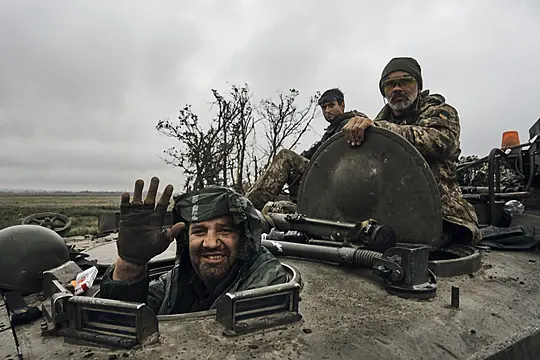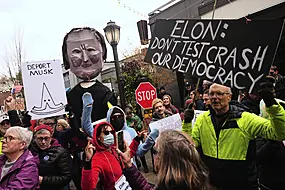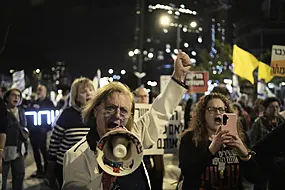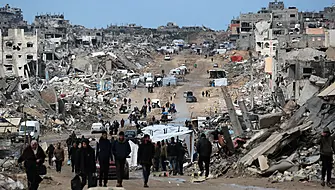Ukrainian President Volodymyr Zelensky said his forces have liberated more than 2,300 square miles in the east and the south since the beginning of September.
Ukrainian troops pushed all the way to the country’s north-eastern border in places, and claimed to have captured a record number of Russian soldiers as part of the lightning advance that forced Moscow to make a hasty retreat.
A spokesman for Ukrainian military intelligence said Russian troops were surrendering en masse as “they understand the hopelessness of their situation”.
A Ukrainian presidential adviser said there were so many POWs that the country was running out of space to accommodate them.

Now Ukrainian teams are disarming land mines and other unexploded weapons in the recaptured areas and searching for any remaining Russian troops, officials said.
It was not yet clear if the Ukrainian blitz could signal a turning point in the war. Momentum has switched back and forth before, but rarely with such a big and sudden swing.
Ukrainian presidential adviser Oleksiy Arestovich did not specify the number of Russian prisoners but said the POWs would be exchanged for Ukrainian service members held by Moscow.
Military intelligence spokesman Andrey Yusov said the captured troops included “significant” numbers of Russian officers.
Ukraine’s deputy interior minister accused fleeing Russian forces of burning official documents and concealing bodies in an attempt to cover up rights violations in the areas they controlled until last week.
The mood was jubilant across the country.
In Kharkiv, Ukraine’s second-largest city and the capital of the region where the gains have been made, authorities hailed that power and water had been restored to about 80% of the region’s population following Russian attacks on infrastructure that knocked out electricity in many places across Ukraine.
“You are heroes!!!” Kharkiv mayor Ihor Terekhov wrote on Telegram, referring to crews who restored utilities in Ukraine’s second-biggest city. “Thanks to everyone who did everything possible on this most difficult night for Kharkiv to normalise the life of the city as soon as possible.”
Meanwhile in Russia, signs of disarray emerged as Russian military bloggers and other commentators chastised the Kremlin for failing to mobilise more forces and take stronger action against Ukraine.
Russia has continuously stopped short of calling its invasion a war, instead describing it as a “special military operation” and relying on a limited contingent of volunteers instead of a mass mobilisation that could spur civil discontent and protest.
Ramzan Kadyrov, the Moscow-backed leader of the Russian region of Chechnya, publicly criticised the Russian Defence Ministry for what he called “mistakes” that made the Ukrainian blitz possible.
Even more notable, such criticism seeped onto state-controlled Russian TV.
“People who convinced President Putin that the operation will be fast and effective… these people really set up all of us,” Boris Nadezhdin, a former parliament member, said on a talk show on NTV television.

“We’re now at the point where we have to understand that it’s absolutely impossible to defeat Ukraine using these resources and colonial war methods.”
Some in Russia blamed Western weapons and fighters for the losses.
“It’s not Ukraine that attacked Izium, but NATO,” read a headline in the state-supported Komsomolskaya Pravda newspaper, referring to one of the areas where Russia said it has withdrawn troops.
Elsewhere, residents of a Russian village just across the border from Ukraine were evacuated after shelling by Ukrainian troops killed one person, according to Russia’s Tass news agency.
The report cited the head of the local administration in Logachevka, who said Ukrainian troops opened fire at a border checkpoint.
Pro-Kremlin separatists reported that Ukrainian troops were approaching the town of Lyman, a rail hub captured by Russia in late May that offers access to bridges over the nearby Siversky Donets river.







